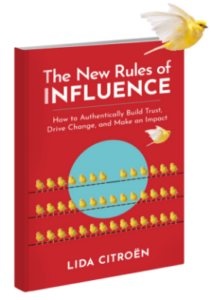Today is Veterans Day, 2014. This date has a special meaning for me, because it was Veterans Day 2009 when I was made aware of the issues facing military personnel in their transition to civilian careers. I learned of the fear and confusion facing former military personnel trying to join the new workforce and the many obstacles that stood in their way. I heard hiring managers struggle with not being able to hire them because the gap in experience and the cultural divide was too great or because they feared “PTSD” and other unknowns associated with combat veterans. And veterans spoke of the heartbreak of wanting to make a meaningful contribution to society after taking off the uniform, but the challenge was something they felt unprepared for. Then, I heard of a new category of worker, “military spouses,” who also face amazing hurdles in explaining spotty resumes and career successes because they moved around a lot supporting their military husband or wife. So I raised my hand and said, “I can help.”
Mine was an easy service. Even though I have no personal connection to the military, I knew there was a place for me to help. I spent months tapping into my network trying to offer insight, training, and tools to help veterans transition from one career to another. You see, I make my living helping executives and professionals around the world compete successfully in their high-profile careers using personal branding, social equity, and reputation management tools. I felt helping veterans with those same tools was the minimum I could do for the service they gave to ensure my freedom and liberties as an American.
It’s been five years since I felt that pull to help. As many of you know, this journey has been an amazing one for me. I have met hundreds (if not thousands!) of the most creative, passionate, committed, talented, and focused individuals who served in our Armed Forces. They are gracious, polite, coachable, and grateful. For me, this is how I get to serve those who’ve served.
Is service a part of your personal brand? When you imagine your legacy and the life you are meant to lead, does service come into play — and if so, how? Here are some examples of how people I know express service as part of their personal brand:
- My oldest son took 2.5 weeks and went to Ghana (Africa) on a mission trip to help bring joy and build a new school for children there.
- My youngest son volunteered two weeks from his high school summer vacation to work with children with autism at a camp in Missouri.
- My good friend raises funds and awareness for political candidates she passionately believes can change the face of our State.
- My friend and her husband help children at the Boys & Girls Club in their community because they feel they were blessed with more than these kids have.
- Another friend of mine, who is a talented writer, volunteers to visit with dogs at a local shelter and then crafts the “stories” about their personalities to hopefully attract potential adopting owners.
- A client of mine spends hours coaching young entrepreneurs in his country to inspire them with resources beyond what they have access to or the ability to apply.
- Another client of mine makes large anonymous donations to local charities in September, before the holiday rush.
These are just some of the examples of people I know personally who give to others in ways that are not always quantifiable and/or acknowledged. That’s not why they do it. Service isn’t about the quality and quantity of the offering. It’s about feeling a pull in your heart, following that passion and commitment, and seeing it through to the end. It’s about knowing there is a person, baby, stray animal, community, veteran, or parent who needs your help and leaning into the opportunity or challenge because your heart won’t let you rest until you do something.
Mahatama Ghandi said, “The best way to find yourself is to lose yourself in the service of others.” I believe this. In the years I have been working with military veterans, one of the biggest challenges they face in transitioning back is that their commitment to service necessitated their losing a sense of self. This is problematic when they compete for civilian careers.
This Veterans’ Day, let’s all find a way to serve — in your town, community, company, industry, country, or wherever the need speaks to you. Let’s thank a veteran and help them find a career; let’s thank their spouse, who gave up so much to support their husband or wife. Let’s all find a way to make service of some kind part of our legacy and personal brand. Surely, the world will be a much better place!

